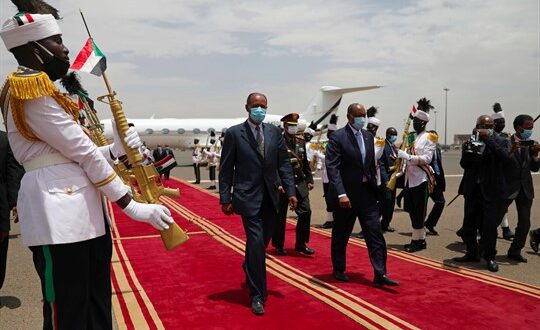In early May, when Eritrean President Isaias Afwerki visited Sudan, the official objective of the trip was to strengthen bilateral ties within a regional framework. The visit nevertheless raised eyebrows. It came on the heels of Eritrea’s military participation in Ethiopia’s civil war in Tigray region, and also at a time of rising tensions between Ethiopia and Sudan over the Grand Ethiopian Renaissance Dam and a border dispute involving areas near Tigray, among other issues. Unofficially, local observers have suggested that Eritrea may seek a role in mediating between Ethiopia and Sudan.
Whatever the actual purpose of Isaias’ visit, it highlighted the degree to which, in the past three years, Eritrea has gone from being an international pariah state to an increasingly visible and influential regional powerbroker in the Horn of Africa. Beginning in 2018, with its normalization of diplomatic relations with Ethiopia and Somalia, and more recently with its military assistance to Ethiopia in Tigray, the secretive, dictatorial state has broken out of the isolation it previously faced.
What does Eritrea seek from its newfound position? To understand that, one must begin with a look at the country’s history since it declared its statehood in May 1993, after a 30-year war for independence from Ethiopia. During that struggle, Isaias’ Eritrean People’s Liberation Front, or EPLF, had made common cause with Meles Zenawi’s fighters from the northern Tigray region, which borders Eritrea, to oust the Ethiopian dictator Mengistu Haile Mariam. At the ceremony celebrating Eritrea’s independence, Isaias and Meles—who had become the prime minister of Ethiopia—both spoke about a future of collaboration, foregrounding the two countries’ commonalities and their shared desire to heal the wounds of the past.
 Eurasia Press & News
Eurasia Press & News




